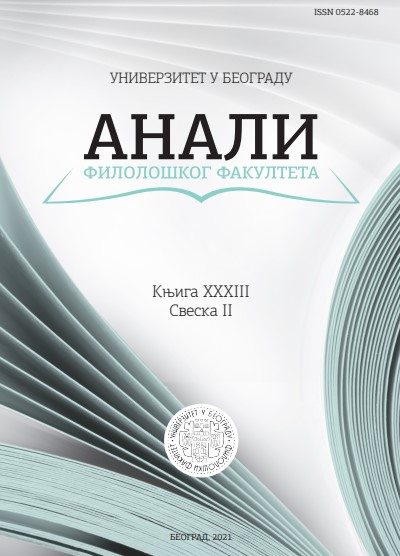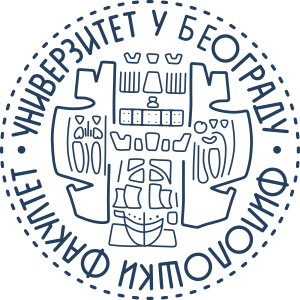Shaping students’ identity through EFL in Belgrade high schools
DOI:
https://doi.org/10.18485/analiff.2021.33.2.6Keywords:
language and identity, English language teaching, Belgrade high schools, world Englishes, instrumental motivation, integrative motivationAbstract
The global spread of English has led to a myriad of speculations as to whether the language affects learners’ identities and, if so, whether the consequences are positive or negative. Thus, the two hypotheses leading this paper assert that the Serbian element of Belgrade high school students’ networks of identities is unshaken, but that their English teachers have a central role in shaping their identities. The data was compiled using two research methods – a questionnaire completed by the students and an interview done with their English teachers. The study incorporated 158 third- and fourth-grade students from the Sixth and Fifth Belgrade High School and three teachers. The analysis of the responses confirms the hypotheses, with special emphasis on the fact that the teachers are responsible for the formation of the students’ identities. However, the data also reveals the existence of a small but distinct and vociferous minority of students who identify themselves with the English speech community. Therefore, not only should ELT practitioners in Serbia work on developing the learners’ critical thinking skills and introducing world Englishes into the classroom, but they should also attune their approach to students with both instrumental and integrative motivation.
Downloads
Published
How to Cite
Issue
Section
License

This work is licensed under a Creative Commons Attribution-ShareAlike 4.0 International License.
Authors who publish with this journal agree to the following terms:
- Authors are confirming that they are the authors of the submitting article, which will be published (print and online) in the journal Anali filološkog fakulteta by the Faculty of Philology, University of Belgrade (Faculty of Philology, Studentski trg 3, 11000 Belgrade, Serbia). Author’s name will be evident in the printed article in the journal. All decisions regarding layout and distribution of the work are in hands of the publisher.
- Authors guarantee that the work is their own original creation and does not infringe any statutory or common-law copyright or any proprietary right of any third party. In case of claims by third parties, authors commit their self to defend the interests of the publisher, and shall cover any potential costs.
- Authors retain copyright and grant the journal right of first publication with the work simultaneously licensed under a Creative Commons Attribution-ShareAlike 4.0 International License that allows others to share the work with an acknowledgement of the work's authorship and initial publication in this journal.
- Authors are able to enter into separate, additional contractual arrangements for the non-exclusive distribution of the journal's published version of the work (e.g., post it to an institutional repository or publish it in a book), with an acknowledgement of its initial publication in this journal.
- Authors are permitted and encouraged to post their work online (e.g., in institutional repositories or on their website) prior to and during the submission process, as it can lead to productive exchanges, as well as earlier and greater citation of published work.





